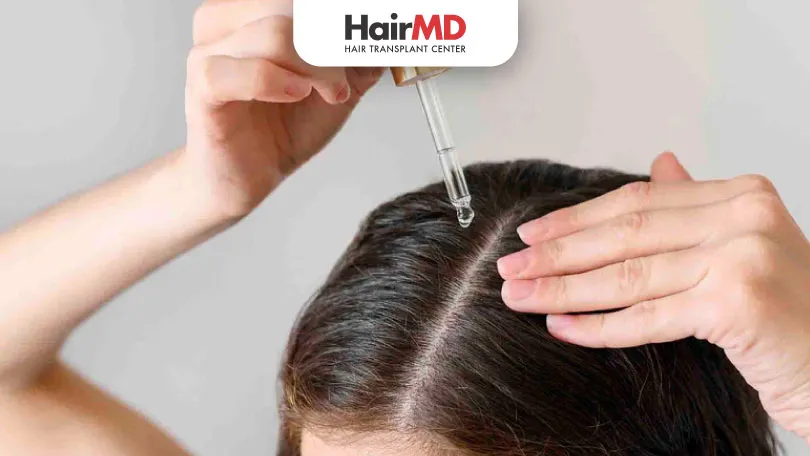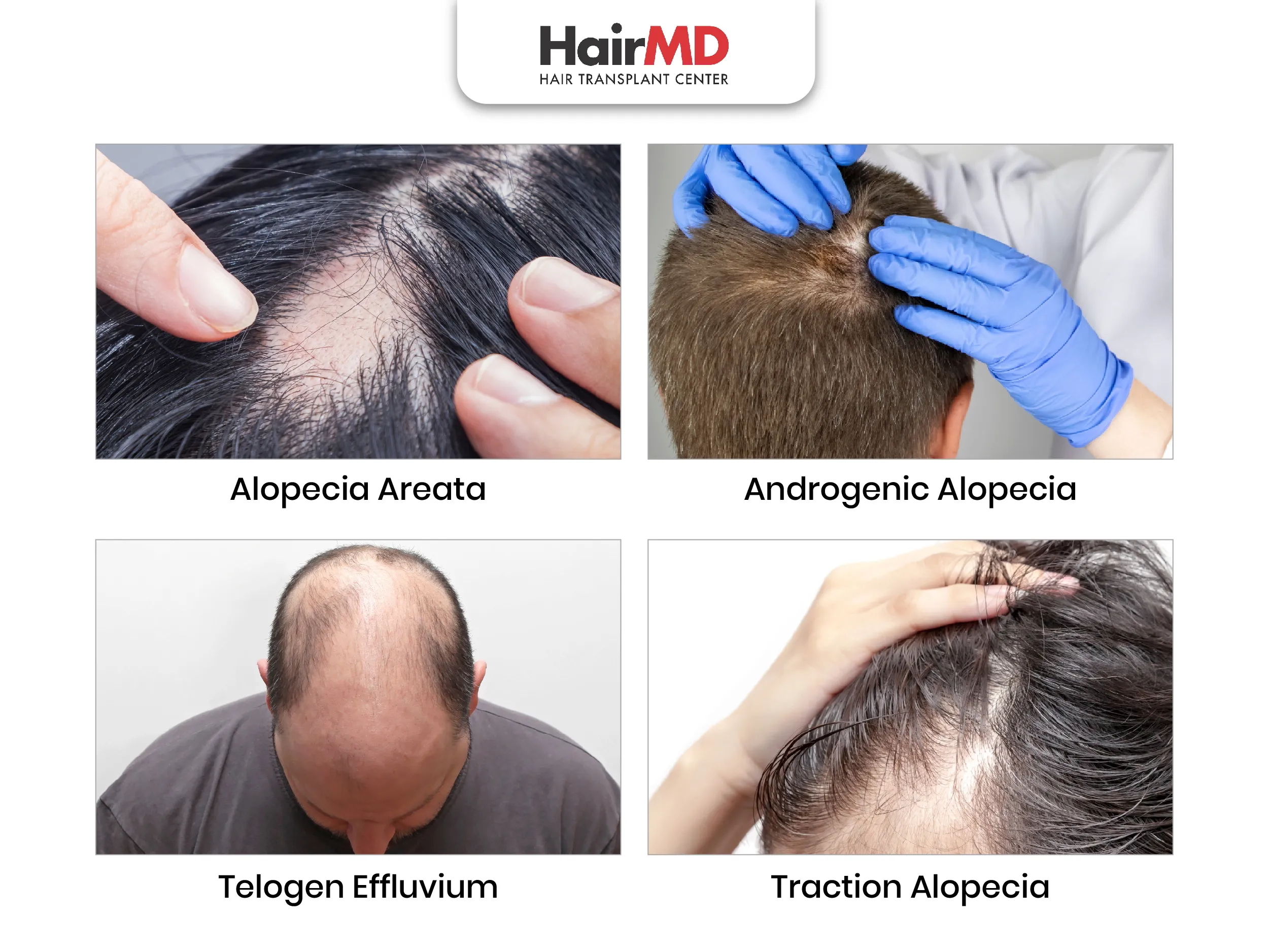21st December, 2024

Hair loss is a prevalent issue among women in today’s fast-paced world due to a variety of factors such as stress, hormonal changes, and environmental impacts. Fortunately, several hair growth treatments are available to assist ladies in combating this condition and regaining their gorgeous locks. We will look at a variety of hair growth therapies, from natural remedies to advanced medical solutions, that can effectively manage hair loss and encourage healthier hair in this thorough guide.
Hair is an important part of a woman’s appearance, and losing it can be upsetting. This article will walk you through several hair growth treatments , assisting you in understanding the causes of hair loss and investigating viable remedies to this problem.
What’s covered in the article?
- What are Causes of Hair Loss in Women?
- What are Types of Hair Loss?
- Hair Regrowth Natural Remedies for Women
- Best Hair Regrowth Treatments for Women
- Conclusion
What are Causes of Hair Loss in Women?
Women’s hair loss can be caused by a number of factors, including heredity, hormonal imbalances, poor nutrition, and environmental conditions. To find the best treatment, the underlying reason must be identified.
What are Types of Hair Loss?
1. Androgenic Alopecia
Androgenic alopecia, also known as pattern baldness, is the most common type of hair loss, driven by genetics and hormonal changes. Men experience a receding hairline and crown thinning, while women see diffuse scalp thinning. Treatments include minoxidil, finasteride for men, laser therapy, and hair transplants.
2. Alopecia Areata
Alopecia areata is an autoimmune disorder causing hair loss due to the immune system attacking hair follicles. Its exact cause is unknown but involves genetic and environmental factors. Symptoms include patchy hair loss, which can progress to complete baldness or total body hair loss. Treatments include steroid injections, topical immunotherapy, and oral corticosteroids.
3. Telogen Effluvium
Telogen effluvium is a temporary hair loss condition caused by factors like stress, hormonal changes, or medication, leading to widespread thinning across the scalp. Addressing the root cause is key, and hair usually regrows once resolved, with nutritional supplements potentially aiding recovery.
4. Traction Alopecia
Traction alopecia is hair loss caused by prolonged tension from hairstyles like tight braids or ponytails, leading to thinning around the hairline and temples. Treatment includes changing hairstyles to reduce tension and, in severe cases, considering hair transplant surgery.

Hair Regrowth Natural Remedies for Women
Diet and Nutrition
A healthy hair requires a well-balanced diet rich in vitamins, minerals, and proteins. Foods like salmon, almonds, and leafy greens can help encourage hair development.
Scalp Massage
Regular scalp massages stimulate hair follicles and promote growth by increasing blood circulation. Essential oils can be used to supplement the benefits.
Essential Oils
Oils like lavender, rosemary, and castor oil have been known to improve hair growth and reduce hair loss when applied to the scalp.
Best Hair Regrowth Treatments for Women
- Minoxidil: Minoxidil is an FDA-approved topical solution that can help women regrow hair. It is available over the counter and is easy to incorporate into your daily routine.
- Biotin Supplements: Biotin, a B vitamin, can help to strengthen your hair and nails. Taking biotin tablets can help treat hair loss caused by dietary deficiencies.
- Platelet-Rich Plasma (PRP) Therapy: PRP therapy includes the use of platelets from your blood to encourage hair growth. This treatment is growing more popular among women looking for non-surgical options.
- Low-Level Laser Therapy (LLLT): To stimulate hair follicles, low-level lasers or light-emitting diodes are used in LLLT. This painless non-invasive treatment has demonstrated encouraging outcomes.
- Hair Transplantation: Hair transplantation might be a permanent cure for more severe cases of hair loss. The transfer of healthy hair follicles to areas with thinning or no hair is the goal of this surgical treatment.
- Mesotherapy: Mesotherapy involves injecting a cocktail of vitamins and minerals into the scalp. It can be a highly effective treatment for hair loss.
- Microneedling: Microneedling is a minimally invasive technique that stimulates collagen formation and hair follicle growth with small needles.
Women can be distressed by hair loss, but there are several treatment options available. You can select a solution that meets your needs, ranging from natural cures to modern medical procedures. Remember to get the advice of a healthcare expert before beginning any treatment, and be patient as results may take time to appear.
Do You Know?
Nearly 250 Patients Visit HairMD
Everyday For Various Hair Concerns?
(Your journey to healthier and fuller hair starts here!)
Meet Our Dermatologists
Conclusion
The blog concludes that hair loss in women can be distressing, but several effective treatments are available, ranging from natural remedies to advanced medical procedures. Solutions like Minoxidil, Biotin supplements, PRP therapy, low-level laser therapy, hair transplantation, and mesotherapy can help with hair regrowth. HairMD Clinic Pune offers expert advice and treatments tailored to individual needs. It’s essential to consult a healthcare professional before starting any treatment, as results may take time to show. In addition, maintaining a healthy diet and lifestyle can also contribute to hair growth and overall well-being.
Further Reading
Biotin-Rich Foods for Natural Hair Growth
Know the best foods rich in biotin to help your hair to grow naturally stronger and healthier by experts from HairMD, Pune
How to Assess and Improve Hair Density at Home?
Want thicker, healthier hair? Learn simple ways to boost and Measure hair density at home with natural tips and expert advice.
Ultimate Food Guide For Healthy Hair
Discover the Food For Healthy Hair. Learn how nutrients like biotin, zinc, and omega-3 fatty acids contribute to hair strength and shine.
केस पांढरे होण्याची कारणे व उपाय (Causes of Gray Hair)
केस पांढरे होण्याची कारणे व त्यावर घरगुती उपाय जाणून घ्या!
Have thoughts? Please let us know
We are committed not only to treating you, but also educating you.











